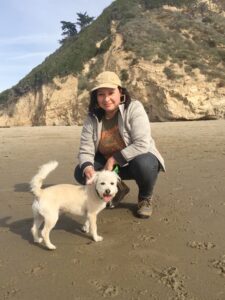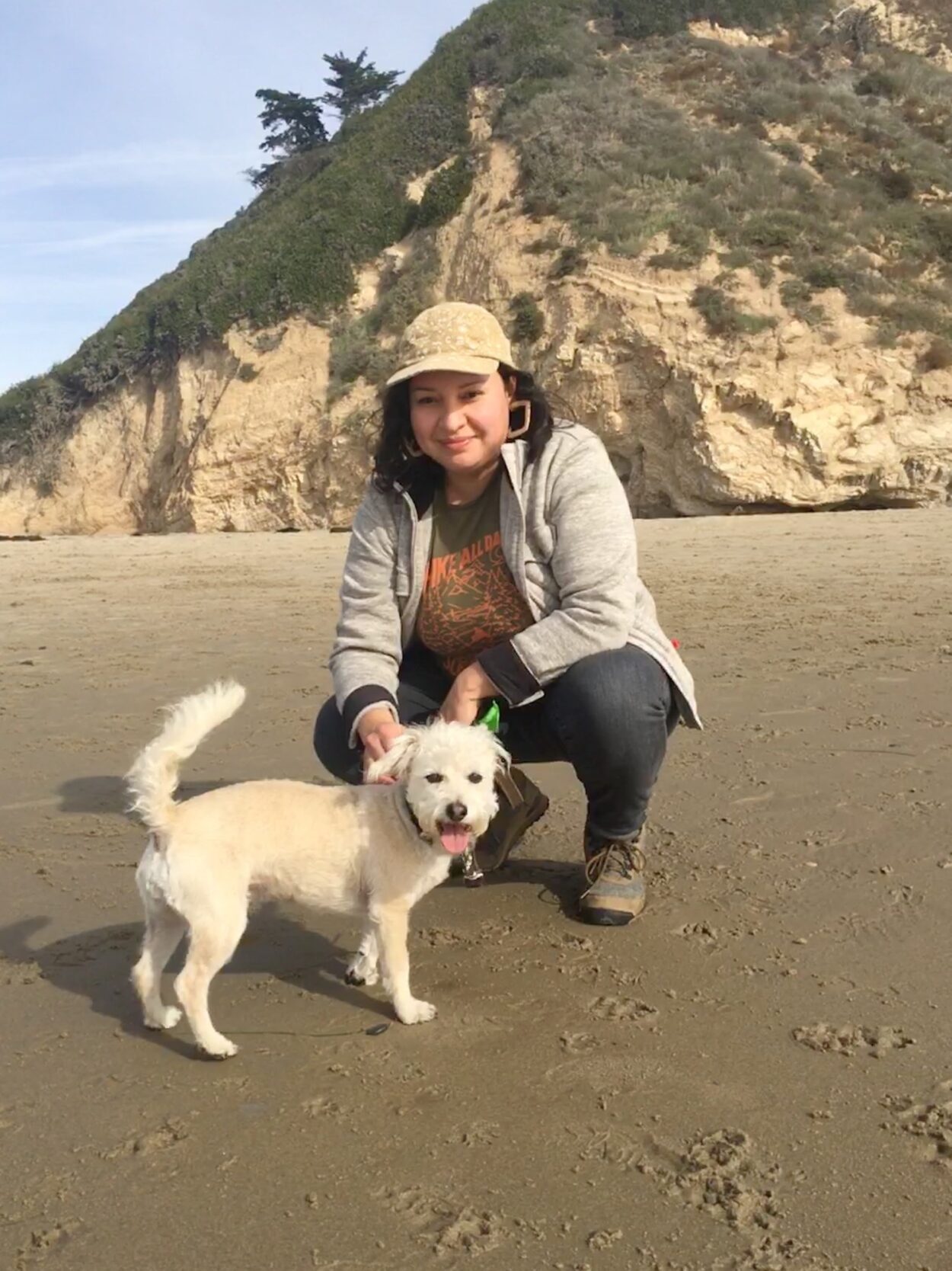 Demi Espinoza is an advocate who believes in the power of narratives. Her own story starts with her parents, people who she describes as working-class Mexican immigrants. Growing up as the youngest of ten in a Community of Color had an impact on the trajectory of Espinoza’s own life. Despite being on the frontline of environmental and social disparities, communities like the one she grew up in weren’t priorities to city policymakers. For the last seven years, Espinoza has worked to change that. With a degree in sociology under her belt, she has worked in environmental justice and transportation policy.
Demi Espinoza is an advocate who believes in the power of narratives. Her own story starts with her parents, people who she describes as working-class Mexican immigrants. Growing up as the youngest of ten in a Community of Color had an impact on the trajectory of Espinoza’s own life. Despite being on the frontline of environmental and social disparities, communities like the one she grew up in weren’t priorities to city policymakers. For the last seven years, Espinoza has worked to change that. With a degree in sociology under her belt, she has worked in environmental justice and transportation policy.
“Working in my hometown changed my perspective of the kind of change that is possible and to dream big,” Espinoza says. “Thinking about how social change can impact families just like mine, it cemented my values in justice work.”
Her current job at Safe Routes Partnership, where she focuses on creating better transportation policies, influenced Espinoza to continue her education in environmental science. She is now on track to earn a Masters of Arts in Urban Sustainability with a Certificate in Applied Spatial Analysis for Geographical Information Systems (GIS) from Antioch University. What makes GIS mapping so compelling to Espinoza’s work is its ability to provide a visual representation of a community.
“I hope to use my GIS skills to gather data and develop maps that could be useful for developing strong conservation and environmental justice policies,” she says.
With a social justice focus, Antioch’s urban sustainability program was a perfect fit for Espinoza, who often finds her passion for activism at the intersection of environmental and social justice. For her, the two pillars are inseparable. It’s Communities of Color, Espinoza points out, that often live in areas with poor air quality and lack access to healthy transportation alternatives, macro disparities that Espinoza grew up experiencing first-hand. Espinoza has experienced microaggressions, like when she attends a policy meeting and notices she is the only person of color, woman, or sometimes both, in the room.
“It can feel so intimidating, and I often felt invisible or not taken seriously,” she says. “I couldn’t help but feel imposter syndrome. Like I wasn’t really supposed to be at the table. It’s something I’m still unlearning and leaning on my network of support.”
Whether it’s at her job, at school, or on an advisory group, Espinoza shows up every day prepared to do the work of an advocate. Espinoza dedicates her spare time to furthering her knowledge, especially in the area of environmental conservation. Through an event at Antioch, Espinoza learned about the California Native Plant Society’s (CNPS) Student Advisory Board and was recently awarded a spot on it.
“The advisory board is a committee of a dozen student members across the state who are interested in studying native plant life,” Espinoza says.
Espinoza is the first student from Antioch to hold the year-long position on the board. It’s a lot of hard work, but the job comes with some incredible perks. As part of the CNPS Student Advisory Board, Espinoza has access to CNPS research and engages in multiple activities and seminars throughout the year, including interviewing professionals in the field and organizing educational events.
This year, Espinoza also joined another leadership development program called Nature for All. Designed as a five-month-long fellowship, Nature for All prioritizes women and people of color. Espinoza and members of her cohort attend bi-monthly workshops with a focus on environmental conservation policy around education and public parks. A recent seminar up at San Gabriel Mountains National Monument shifted Espinoza’s idea for her capstone in Antioch’s urban sustainability program.
“We had a tour of the park, and it was a great example of what a park can look like when agencies outreach and engage the community about what amenities they want and how they want the park to serve their needs,” she says.
When looking towards the future, Espinoza sees herself continuing to make small changes in her community by elevating her lived experience in her work. She wants to apply her degree in urban sustainability along with what she is learning from CNPS and Nature for All to environmental and social justice policies by working for a nonprofit that focuses on access to parks and open spaces policies for Communities of Color. She also hopes to be involved with policies that would ensure land reparations for indigenous people.
“We need to make sure we shift the paradigm of those who are involved in policy and planning,” she says.
Espinoza emphasizes the need for inclusivity in environmental policy programs, as well as the need for more resources, representation, and mentorships by women of color for women of color. When she started her journey, she was a first-generation college student with no understanding of how to navigate the higher-education system. To people who are interested in urban sustainability and park planning, she encourages networking.
“You are not alone. There are resources out there to help you connect the dots. We still have a way to go on equitable representation in environmental organizations,” she says. “But I think the leadership of policy organizations is changing to better reflect communities on the frontlines.”
Whatever the future holds for Demi Espinoza, it’s clear that it will involve her passion for empowering communities like her own with access to resources. It’s a testament to Espinoza’s dedication and character and a goal that’s steeped in the Antioch spirit: the commitment to social and environmental justice.


